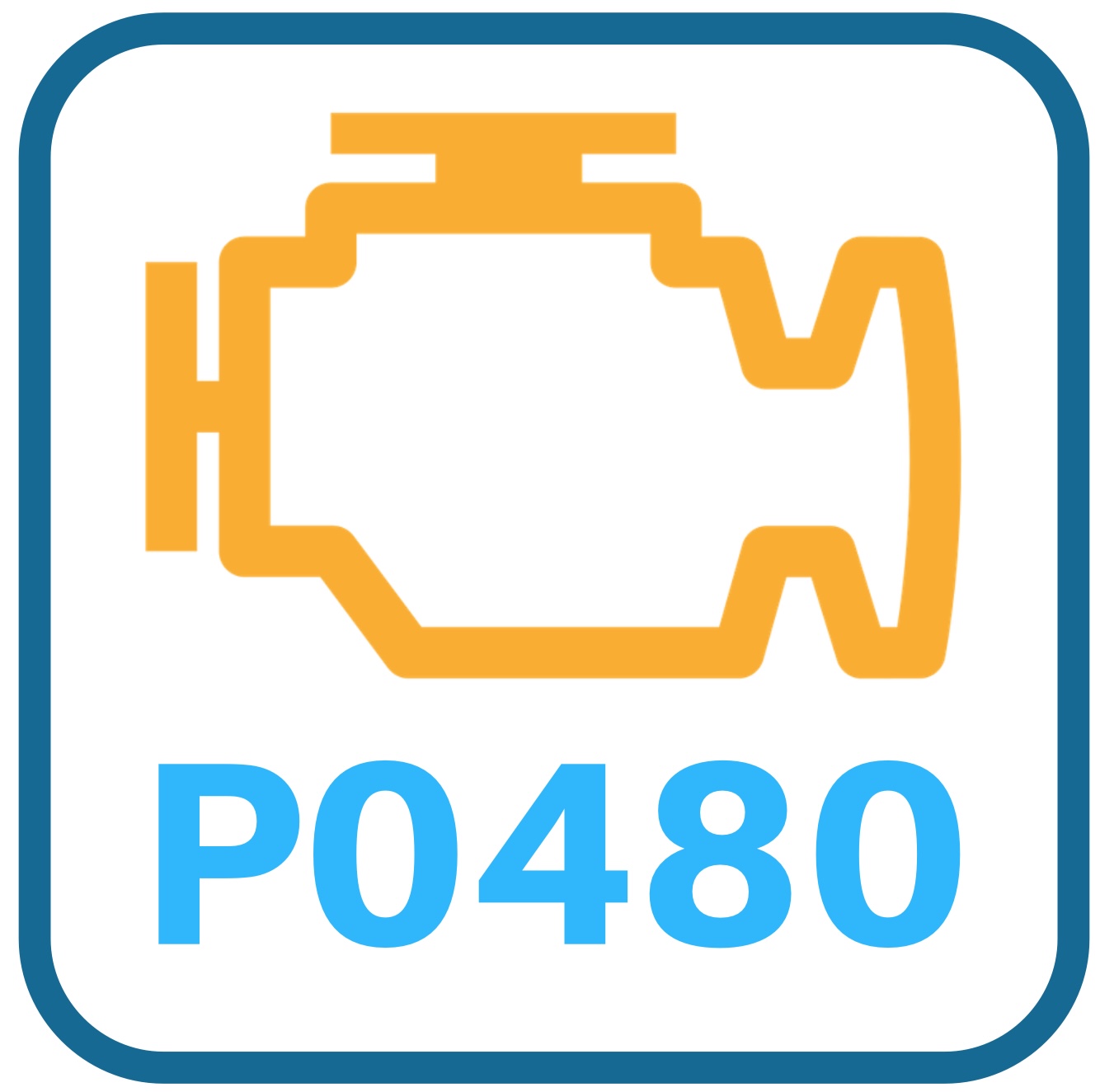P0480 is a relatively common OBDII trouble code. It indicates that the “cooling fan 1 control circuit” is malfunctioning. It’s a generic code, so it has the same meaning for any vehicle made for the 1996 model year and up.
P0480 Definition: Cooling Fan 1 – Control Circuit Malfunction
Here is the definition of P0480, broken down by its two major parts:
Cooling Fan 1
Most modern vehicles are equipped with electric cooling fans. They are activated by the PCM (powertrain control module), whenever the vehicle reaches a certain temperature. One or both of them will also come on when the air conditioner is running.
Control Circuit Malfunction
If the PCM has commanded cooling fan 1 to turn on, but there is an error, P0480 will be stored in the PCM’s memory. This occurs if either the fan doesn’t respond or the PCM detects a serious fault in the control circuit.
P0480: Common Symptoms
- Service engine soon light
- Overheating engine
With P0480 there are no obvious symptoms in terms of drivability. The fan will not affect the way that the engine runs (unless you start to overheat). If you overheat, the engine may start knocking, misfiring, or smoking.
As stated above, running a vehicle without a functioning fan can cause it to overheat, particularly if you are driving on a hot day or you’re in heavy traffic. It can also cause the air conditioner to stop functioning properly.
You’ll want to keep an eye on the temperature gauge and fix P0480 as soon as possible. Once the engine overheats, you may blow a head gasket and that requires a much more expensive repair.
P0480: Causes + Diagnosis
Here are the likely causes of P0480. The problem with this code, is that there are so many potential causes. Here, they are listed in a decent order to check them in.
1. Check for Other Codes
Cross-referencing other codes can help you gain valuable insight. For instance, if you get a code related to the engine coolant temperature sensor, repairing it may very well clear P0480.
2. Inspect Cooling Fan 1
Disconnect the battery. You don’t want the fan getting you if it decides to randomly turn on (which could happen if you try and spin it and the vehicle is hot).
If there are two fans, the one that is NOT in front of the air conditioner is almost always the main cooling fan.
You’re going to spin the fan to see if it’s locked up or otherwise bad. Make sure that the engine is ice-cold or the battery is unhooked before spinning it. Fans can turn on without warning when the engine is hot.
If the fan requires effort to spin, then it’s bad. Replacing it should fix P0480. Clear the codes and see if it comes back.
3. Inspect the Wiring Harness at the Fan
If the fan is spinning ok, check the wiring harness going to it. Fan wiring can be destroyed by debris from the road getting kicked under the vehicle and tearing up the harness. If you live in an area that is chipmunk friendly, don’t be surprised if they chewed the wiring. I’ve seen this a few times.
Make sure that the terminals are plugged in tightly to the fan and that they are not damaged. Verify that the pins are straight and corrosion-free.
4. Inspect the Fan Relay and Fuses
Now that we have verified that nothing obvious is causing P0480, it’s time to take a look under the hood at the fan relay. Before you do, inspect the fan relay fuses to make sure that they haven’t been blown. You can do this visually. Verify power going to the fan relay.
Now it’s time to take a look at fan relay 1 itself. Check out the video below, it’ll show you how to test the fan relay with a multimeter. If there’s no power going to the relay, you’ll need to find where the short is.
5. Other P0480 Causes
Here are some other common causes of P0480, although they aren’t as common as the ones listed above:
- VSS (vehicle speed sensor)
- Intake Air Temp Sensor Failure
- A/C Pressure Switch
Conclusion
P0480 is usually caused by a bad fan, or a bad fan relay. Good luck fixing your vehicle.


